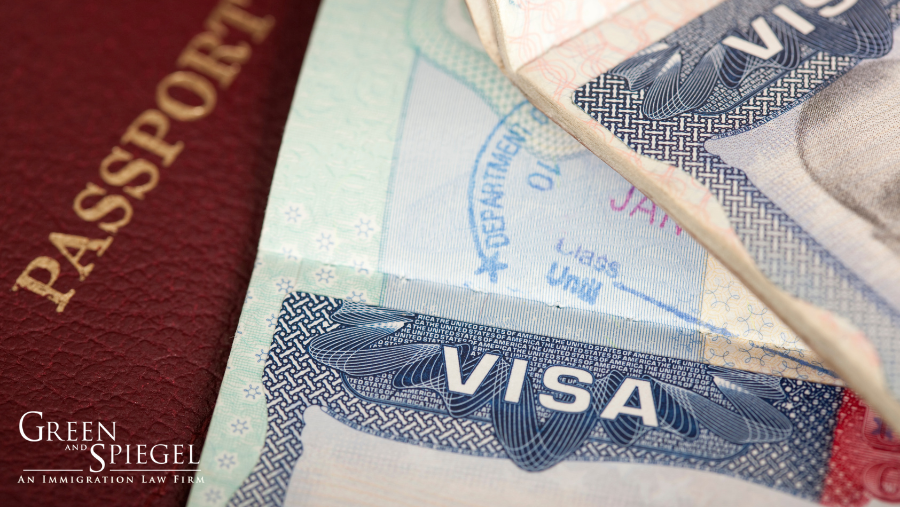Tips for Advising in a Time of Immigration Uncertainty.docx
Authored by Dan Berger, Emily Cohen, and Jonathan Grode of Green and Spiegel, U.S. with Guest Co-Author Stephen Yale-Loehr of Cornell Law School
Since the 2024 presidential election results, immigration lawyers are building on strategies and advice that we gave during the previous Trump administration. We realize this is a time of uncertainty, and that it is difficult to predict the future. More than ever, simple questions such as “am I safe to travel next summer?” are complicated, and we do not know exactly what new policies will be announced. We can assure you that we will work with colleges and universities to provide updated guidance in the weeks and months ahead. We will review new policies, try to summarize them, and put them in context as best we can. We will also share updates on any challenges to policies.
Below we try to answer nine questions about immigration issues that we are hearing about from multiple campuses.
1. Is domestic airplane travel OK? From now until January 20, the situation remains the same. As you prepare for trips after that date, it may be helpful to know that during the previous Trump administration, there were a few reports of random immigration checks on domestic flights. Similarly, there were random immigration checks along highways in central New Hampshire. This is a good time to remind ourselves that the law requires anyone who is not a U.S. citizen to carry evidence of status at all times (green card, Employment Authorization Document (EAD), Form I-94 or electronic I-94 printout, valid, unexpired nonimmigrant DHS admission or parole stamp in a foreign passport, etc.). Make it easy for a government officer by having a copy of immigration documents available. Even U.S. citizens who might face checks or profiling can save a copy of their birth certificate or passport on their phone in case they are questioned. U.S. citizens can also apply for a U.S. passport card that can easily fit in your wallet. Anyone who is undocumented should consult an attorney or nonprofit legal service provider before flying domestically.
The bigger picture is that immigration enforcement agents had more discretion in the previous Trump administration. Two memos issued by the Department of Homeland Security (DHS) in 2017 allowed for “expedited removal,” which is a streamlined process without a hearing with an immigration judge. Having a copy of a document showing your immigration status and that you have been in the United States for more than two years could help avoid questioning and expedited removal.
2. How about electronic devices, can those be searched at the airport or border? The simple answer is “yes.” We recommend that private information on electronic devices should be encrypted. According to the Customs and Border Protection (CBP) website, CBP officers may search laptops, cell phones, or other electronic devices. CBP may not select someone for a personal search or secondary inspection based on religion, race, national origin, gender, ethnicity, or political beliefs. U.S. citizens may also be questioned and have their devices seized for refusal to provide passwords or unlock devices, but cannot be prevented from entering the United States. So be aware of sensitive information on electronic devices when traveling.
3. What is some general advice for international students and scholars on campus now? While we wait to see what policies may change, we recommend filing any applications as early as possible. For example, applications for optional practical training (OPT) can be filed up to 90 days before the program end date. It is possible that processing times will slow, as they did during the previous Trump administration, so filing on the earlier side can help. Also, if you can afford it, consider using premium processing.
4. What does this all mean for DACA recipients? The Deferred Action for Childhood Arrivals (DACA) program is already at risk through litigation that will probably reach the Supreme Court in 2025 or 2026, or by executive action by the new President. We recommend that DACA recipients apply to renew their DACA six months before expiration to have as much time left if DACA is ended. We also recommend that DACA recipients be screened for other immigration options such as employer-sponsored visas or green cards.
5. What does this mean for undocumented parents of students who want to fly within the United States? Some of them have traveled before with no problems. However, President Biden has a policy that puts undocumented individuals with no criminal record or prior removal order low on the priority list for enforcement. That could change next year. Campuses unfortunately have seen families unable to attend campus events before, and many schools set up a video feed of the ceremonies and events.
6. Going beyond travel advice, are there other ways campuses can prepare for new immigration enforcement priorities? Yes, there are some basic steps that campuses can take. Campus response varied in the previous Trump administration, but generally was strong in favor of international education and diversity. A Washington Post article in 2017 found that most schools made some kind of statement. Some schools have been concerned about the political effects of opposing possible new travel bans. While some schools may be less vocal in their responses, most are supporting students and scholars who are concerned, and connecting students with counseling and legal services, and also helping to share up-to-date information.
7. Is the “sensitive locations” memo, which said enforcement should not take place at sensitive locations such as campuses, churches, and hospitals, still in effect? The policy of not conducting immigration enforcement at sensitive locations is still on the ICE website. We hope this will continue, but we do not know.
8. Is it true that the Trump administration and Congress plan to cut back F-1 STEM OPT and the H-1B program and raise the minimum salary requirements for H-1B workers? A lot of ideas and draft memos are floating around Washington. Passing legislation in Congress and amending federal regulations are generally long-term projects. There was significant litigation during the previous Trump administration on F-1 and H-1B issues, and we can expect the same again.
9. Anything else I should know? It takes energy to operate in times of uncertainty. In a recent presentation at a university, the director of the counseling center explained that uncertainty can be more tiring and emotionally challenging than bad news. We recommend taking this one step at a time, taking care of ourselves, and addressing new policies or trends as we see them. It’s important for the international student and scholar communities to know that they are not alone and that advocacy work is ongoing and nationwide.







